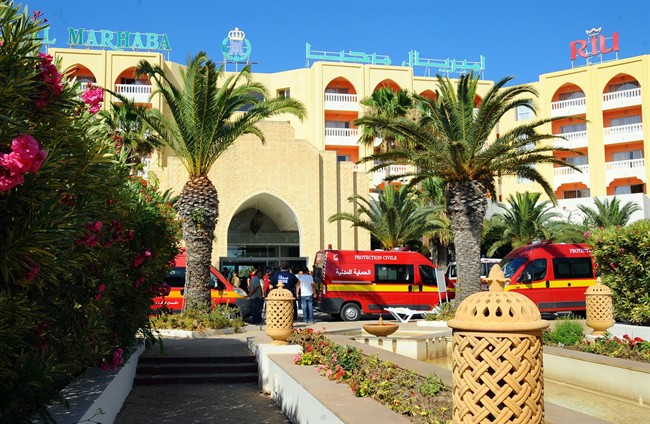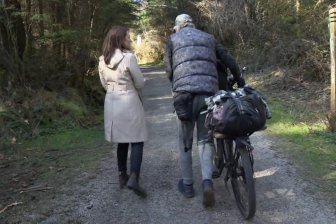The Tunisian government plans to combat the threat of Libya-based terrorists entering the country by constructing a wall along a section of the border with its eastern neighbour.

The 168-kilometre wall would stretch from the Ras Jedir border crossing, near the Mediterranean coast to the town of Dehiba, according to France 24.
Tunisian Prime Minister Habib Essid reportedly told ShemsFM Radio the wall would be in place by the end of this year.
Plans for the border wall came after an ISIS-inspired gunman killed 38 people at a beach resort in Sousse, 30 of them Britons, on June 26. It was the second terrorist attack on a tourist site in Tunisia in just three months, after gunmen stormed the Bardo National Museum in March, killing 22 people.
Tunisian officials believe 24-year-old gunman Seifeddine Rezgui trained in Libya with the Bardo Museum attackers.
At least eight other suspects have been detained in connection with the attack.
READ MORE: Officials confirm Tunisia beach killer trained with Bardo museum gunmen
The Tunisian government declared a state of emergency following the attack in Sousse and has deployed more than 1,400 armed forces to secure hotels and beaches, according to BBC.
The wall will not stretch the entire length of the Tunisia-Libya border, which extends 500 kilometres south from the Mediterranean Sea to where the border joins the Tunisia-Algeria border.
ISIS has made headway in Libya in recent months, amid political instability that has persisted since the overthrow of longtime-dictator Muammar Gaddafi following the 2011 Arab Spring uprising.
A report in Newsweek earlier this year estimated more than 5,000 foreign fighters may be fighting with ISIS in Libya.
Tunisia itself has the highest number of foreign fighters to have left home to join ISIS in Iraq and Syria — an estimated 3,000 Tunisians by last October.
READ MORE: Russell Brand criticized Tunisia victims tribute to talk about arms sales. Did he have a point?
Essid told parliamentarians on Wednesday authorities believe there are terror plots in the works aimed at “killing as many people as possible,” creating instability and destroying the country’s economy, The Associated Press reported.
“Tunisia faces a very serious danger and it should take any possible measures to maintain security and safety,” President Beji Caid Essebsi said Saturday when he announced a 30-day state of emergency. “As we see in other countries, if attacks like Sousse happen again, the country will collapse.”
The tourism industry is vital to Tunisia’s economy, accounting for 7 per cent of its gross domestic product according to The Economist.
The industry has been trying to recover since the 2011 Arab Spring uprisings, which began in Tunisia and brought an end to the 24-year rule of President Zine al-Abidine Ben Ali.
Tunisia was seen as having prospered the most of all the countries in the Middle East and North Africa where uprisings originated — the only “success story” according to the Washington Post. It was the first to hold a multi-party, democratic election and one of the only nations not to descend into chaos.




Comments